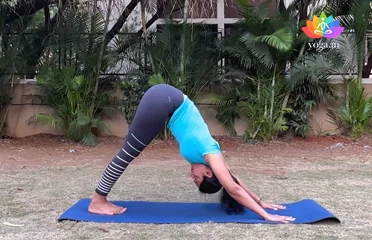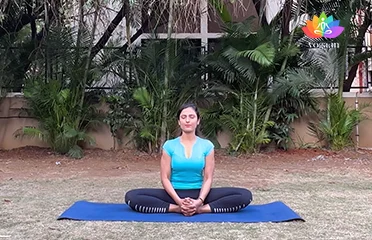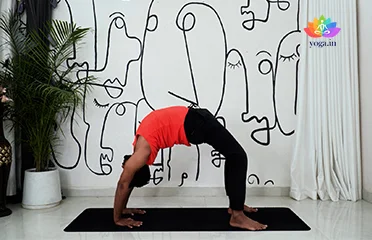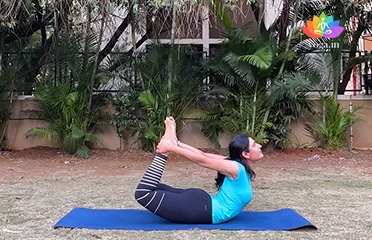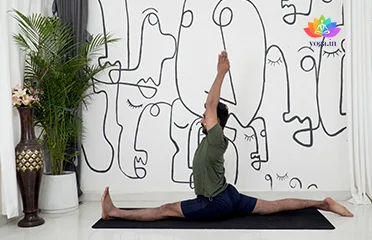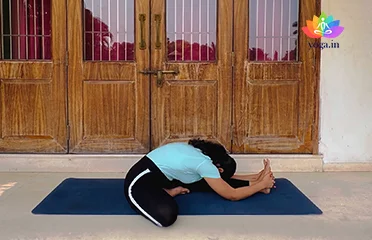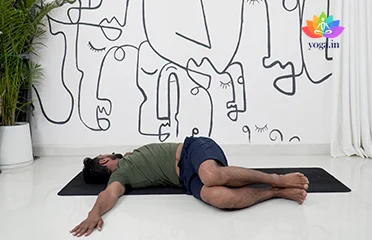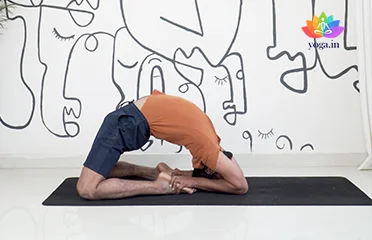Adho Mukha Svanasana (Downward-Facing Do
अधोमुख श्वानासन / Downward-Facing Dog Pose
The sanskrit name is derived from adhas (अधस्) meaning down, mukha [�K]
Anantasana (Sleeping Vishnu Pose)
अनन्तासन / Sleeping Vishnu Pose | Vishnu's Couch Pose
The Sanskrit name is derived from Ananta (अनन्त) meaning without end [�K]
Bhadrasana (Gracious Pose | Butterfly Po
भद्रासन / Gracious Pose | Butterfly Pose
The Sanskrit name is derived from Bhadra (भद्रा) meaning gracious, [�K]
Bhujangasana (Cobra Pose)
भुजंगासन / Cobra Pose
The Sanskrit name is derived from Bhujanga (भुजंगा) meaning cobra [�K]
Chakrasana (Wheel Pose)
चक्रासनI / Wheel Pose
The Sanskrit name is derived from Chakra (चक्रा) means wheel and asana [�K]
Dhanurasana (Bow Pose)
धनुरासन / Bow Pose
The Sanskrit name is derived from Dhanur (धनुर) means bow and Asana [�K]
Hanumanasana (Monkey Pose)
हनुमानासन / Monkey Pose
The Sanskrit name is derived from the Hindu God -Hanuman (हनुमान) [�K]
Janusirsasana (Head to Knee Pose)
जानुशीर्षासन / Head to Knee Pose
The Sanskrit name is derived from (जानु) Janu means knee, Sirsa (शीर्षा) [�K]
Jathara Parivartanasana (The Abdominal T
ञठर परिवर्तनासन / The Abdominal Twist
The Sanskrit name is derived from Jathara (ञठर) meaning belly or abdomen, [�K]
Kapotasana (Pigeon Pose)
कपोटासन / Pigeon Pose
The Sanskrit name is derived from Kapota (कपोटा) meaning pigeon or [�K]
- 1
- 2
- 3
Breathe Deep, Breathe Easy – Yoga for Enhanced Respiratory Health
Yoga offers a natural approach to cultivate healthy lungs and a robust respiratory system. It combines physical postures (asanas), breathing exercises (pranayama), and mindfulness to:
- Improve Lung Function: Specific yoga practices enhance lung capacity by increasing expansion and flexibility.
- Boost Respiratory Strength: Yoga postures and breathing techniques strengthen the diaphragm, the key muscle responsible for inhalation.
- Promote Overall Well-being: By addressing stress, a major contributor to shallow breathing, yoga fosters deeper, more efficient respiration.
Understanding the Impact on Your Breath:
Several factors can influence your respiratory health:
- Stress: Chronic stress triggers rapid, shallow breathing, hindering lung function. Yoga’s focus on relaxation combats stress, allowing your lungs to work optimally.
- Sedentary Lifestyle: Inactivity weakens respiratory muscles. Yoga’s gentle movements and mindful breathing help strengthen these muscles, improving your ability to take in oxygen.
- Environmental Toxins: Air pollution, allergens, and smoking irritate airways. Yoga promotes deeper breathing patterns, potentially helping clear irritants and improve overall lung health.
- Age: Lung function naturally declines with age. Yoga can help maintain lung elasticity and capacity for optimal breathing, even as you get older.
- Underlying Conditions: Certain medical conditions like asthma can affect breathing. While not a cure, yoga can be a valuable complementary therapy.
Symptoms of Respiratory Issues:
- Shortness of breath
- Wheezing
- Chest tightness
- Cough
- Fatigue
- Sleep disturbances
- Frequent colds and infections
Yoga & Pranayama: Natural Allies for Your Lungs
Yoga offers a safe and effective way to manage respiratory issues by:
- Strengthening the Diaphragm: As the primary muscle for breathing, a stronger diaphragm translates to deeper, more efficient breaths.
- Enhancing Lung Expansion: Specific yoga poses, and breathing exercises help open the chest and lungs, allowing for greater air intake.
- Reducing Stress and Anxiety: Chronic stress can exacerbate respiratory symptoms. Yoga’s relaxation techniques promote mindfulness and reduce stress, fostering better breathing patterns.
- Improving Circulation: Enhanced circulation optimizes oxygen delivery throughout the body, including the lungs.
- Boosting the Immune System: Regular yoga practice may strengthen the immune system, potentially reducing susceptibility to respiratory infections.
Dietary Support for Healthy Breathing
Complement your yoga practice with a diet rich in:
- Anti-inflammatory Foods: Fruits, vegetables, whole grains, and healthy fats can help reduce inflammation in the airways, easing breathing difficulties.
- Hydration: Proper water intake keeps the respiratory system moist and functioning optimally.
- Limited Processed Foods & Added Sugars: These can contribute to inflammation and worsen respiratory symptoms in some individuals.
A Word of Caution & Contraindications
Always listen to your body, especially if you have any pre-existing respiratory conditions. Modify or skip poses that cause discomfort and consult a qualified yoga teacher experienced in working with respiratory conditions. Be sure to communicate any medical conditions to your yoga teacher to ensure safe and beneficial practice.
By incorporating yoga, pranayama, and a healthy diet into your routine, you can take charge of your respiratory health and breathe easier, naturally.


